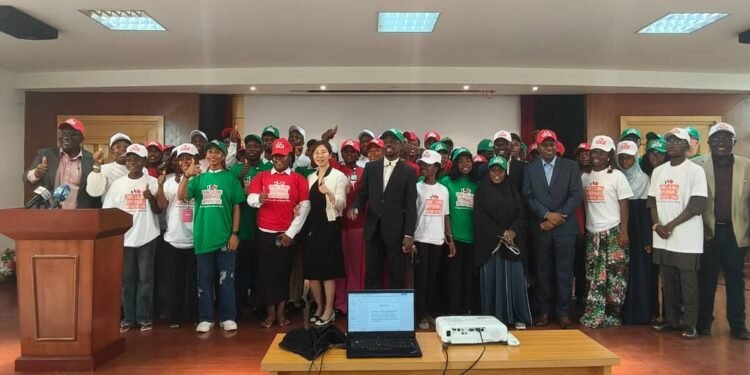
By Faovour Chioma
Abuja, Nigeria – Nigerian and Chinese experts have renewed calls for sweeping reforms of global governance institutions, stressing that the current system disproportionately serves a handful of powerful nations while sidelining Africa and other regions of the Global South.
The call was made during a one-day seminar in Abuja on Thursday, themed “Opportunities for China-Africa Cooperation under the Global Governance Initiative (GGI).”
Speaking at the event, Dong Hairong, Counsellor at the Embassy of the People’s Republic of China, said the GGI represents Beijing’s broader vision for a more inclusive and equitable world order.
She highlighted ongoing global challenges geopolitical tensions, economic instability, and public health crises as evidence of the urgent need for reform.
“The GGI is a new platform for reforming the global governance system. It seeks to build a fairer, more inclusive international system through joint efforts of all countries and multilateral mechanisms,” Hairong said.
She reiterated China’s readiness to support reforms in global institutions such as the United Nations Security Council (UNSC) and international financial bodies, noting that Beijing stands with African nations in correcting “historical injustices” and giving the Global South stronger representation.
On Nigeria’s role, Hairong stressed that the initiative aligns with the country’s vision for development and its longstanding advocacy for reform in international decision-making.
Professor Sheriff Ibrahim, Director of the Centre for Contemporary China-Africa Research, echoed these concerns, describing global institutions as “skewed in favour of a select few powers.”
He called for permanent UNSC seats for every continent, questioned the exclusion of currencies like the Chinese yuan in global finance structures, and urged reforms in the IMF and G20 to better reflect the interests of developing nations.
“What happens to Africa? What happens to Latin America and the Caribbean? Why should only five permanent members dictate global governance? This is exclusion,” Ibrahim argued.
He added that Nigeria’s recent interventions at global summits, including President Bola Tinubu’s contributions at the G20 and the Forum on China-Africa Cooperation (FOCAC), reflect the country’s determination to secure a permanent seat at the UNSC—with China backing its bid.
Charles Onunaiju, Director of the Centre for China Studies, cautioned that African nations must also build internal strength to avoid being left behind.
“You are either on the table or you are on the menu. To be on the table, Africa must build capacity—strong institutions, economic resilience, and political will,” he said.
Onunaiju praised China’s consistency in delivering on cooperation pledges, contrasting it with what he described as “broken promises” from Western-led initiatives. He expressed confidence that the GGI will succeed where others faltered.
The Global Governance Initiative (GGI) was unveiled by President Xi Jinping on September 1, 2025, at the Shanghai Cooperation Organization Plus meeting. Xi called for a new governance order rooted in fairness, inclusivity, and mutual respect.
Nigeria has since publicly endorsed the initiative, with its Ministry of Foreign Affairs describing the GGI as a “timely and thoughtful response” to today’s global challenges and aligned with the African Union’s Agenda 2063.
Experts at the seminar concluded by urging African nations to reposition themselves through good governance, anti-corruption reforms, and people-centered development, ensuring they take their place in shaping the future of global governance.






